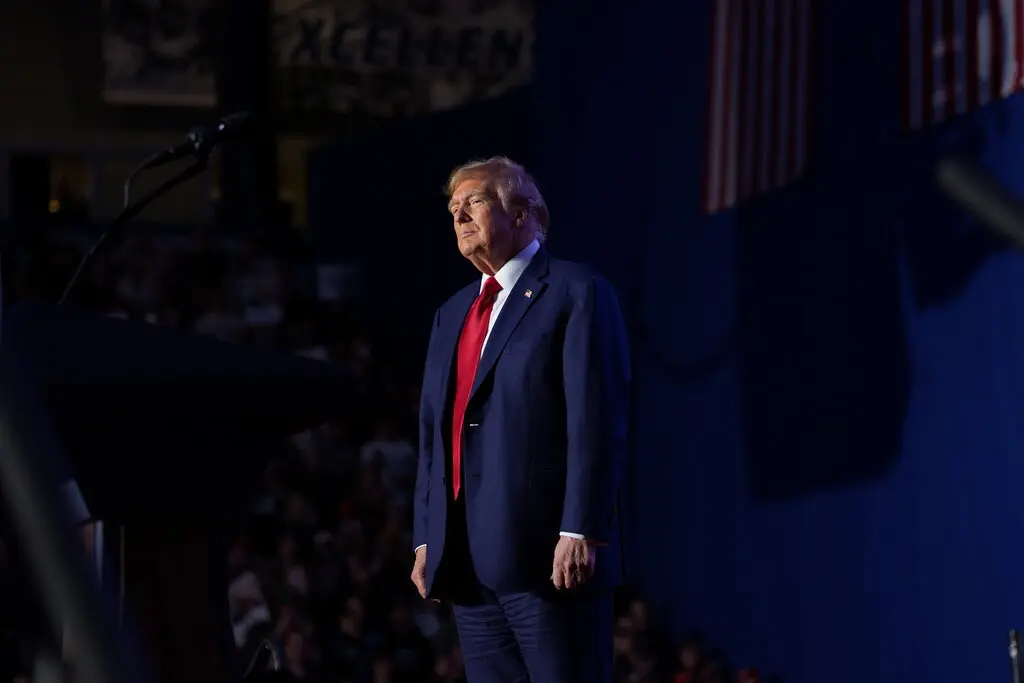Colorado’s top court ruled on Tuesday that former President Donald J. Trump is disqualified from holding office again because he engaged in insurrection with his actions leading up to the Jan. 6 storming of the Capitol, an explosive ruling that is likely to put the basic contours of the 2024 election in the hands of the U.S. Supreme Court.
The Colorado Supreme Court was the first in the nation to find that Section 3 of the 14th Amendment — which disqualifies people who engage in insurrection against the Constitution after taking an oath to support it — applies to Mr. Trump, an argument that his opponents have been making around the country.
The ruling directs the Colorado secretary of state to exclude Mr. Trump’s name from the state’s Republican primary ballot. It does not address the general election.
“We do not reach these conclusions lightly,” a four-justice majority wrote, with three justices dissenting. “We are mindful of the magnitude and weight of the questions now before us. We are likewise mindful of our solemn duty to apply the law, without fear or favor, and without being swayed by public reaction to the decisions that the law mandates we reach.”
Mr. Trump’s campaign said immediately that it would appeal the decision to the U.S. Supreme Court. The Colorado justices anticipated that likelihood by putting their ruling on hold at least until Jan. 4; if Mr. Trump appeals before then, the hold will continue until the Supreme Court rules. And while Tuesday’s ruling applies only to one state, it could all but force the nation’s highest court to decide the question for all 50.
“It’s hard for me to see how they don’t take this one, because this certainly seems to be one of those questions that requires some national resolution,” said Anthony Michael Kreis, an assistant professor of law at Georgia State University who has closely followed the Colorado case and related lawsuits around the country.
If the justices take up the case, it will join a pile of other Trump-related matters they have agreed or are likely to decide, including whether he is immune from criminal prosecution for actions he took in office and the scope of an obstruction charge that is central to his federal Jan. 6 case.
The U.S. Supreme Court has a 6-to-3 conservative majority, with three justices appointed by Mr. Trump himself, and it is already under extraordinary political pressure and scrutiny both for its rulings and its justices’ ethics.
“Once again, the Supreme Court is being thrust into the center of a U.S. presidential election,” said Richard L. Hasen, an election law expert at the University of California, Los Angeles, who compared the stakes to Bush v. Gore. “But, unlike in 2000, the general political instability in the United States makes the situation now much more precarious.”
In the Colorado court’s lengthy ruling on Tuesday, the justices there reversed a Denver district judge’s finding last month that Section 3 did not apply to the presidency. They affirmed the district judge’s other key conclusions: that Mr. Trump’s actions before and on Jan. 6, 2021, constituted engaging in insurrection, and that courts had the authority to enforce Section 3 against a person whom Congress had not specifically designated.
“A majority of the court holds that President Trump is disqualified from holding the office of president under Section 3 of the 14th Amendment to the United States Constitution,” the justices wrote. “Because he is disqualified, it would be a wrongful act under the Election Code for the Colorado secretary of state to list him as a candidate on the presidential primary ballot.”
Mr. Trump’s campaign denounced the ruling, which is likely to inflame a Republican base that he has primed to see the array of civil and criminal cases against him as a witch hunt. Politically, his standing among Republican primary voters has only risen in the wake of the dozens of criminal charges against him.
“Unsurprisingly, the all-Democrat appointed Colorado Supreme Court has ruled against President Trump, supporting a Soros-funded, left-wing group’s scheme to interfere in an election on behalf of Crooked Joe Biden by removing President Trump’s name from the ballot and eliminating the rights of Colorado voters to vote for the candidate of their choice,” a campaign spokesman, Steven Cheung, said. “We have full confidence that the U.S. Supreme Court will quickly rule in our favor and finally put an end to these un-American lawsuits.”
Similar lawsuits in Minnesota and New Hampshire were dismissed on procedural grounds. A judge in Michigan ruled last month that the issue was political and not for him to decide, and an appeals court affirmed the decision not to disqualify Mr. Trump there. The plaintiffs have appealed to the Michigan Supreme Court.
Tuesday’s ruling “is not only historic and justified, but is necessary to protect the future of democracy in our country,” Noah Bookbinder, the president of Citizens for Responsibility and Ethics in Washington, said in a statement. His organization represented the voters seeking to disqualify Mr. Trump in Colorado.
Mr. Trump himself, who has routinely railed against unfavorable rulings, did not explicitly mention the Colorado Supreme Court decision in a speech Tuesday evening in Waterloo, Iowa — but his campaign was already fund-raising off it. An email to his supporters accused Democrats of trying to “nullify” Trump votes and asked for contributions to help defend his place on ballots.
Republican elected officials quickly circled the wagons around Mr. Trump, and a super PAC supporting him blasted out some of their comments to supporters.
In one more illustration of the unusual nature of the 2024 Republican primary race — in which even the candidates seeking to defeat Mr. Trump for the party’s nomination have largely shied away from condemning him — his main rivals, Ron DeSantis and Nikki Haley, both suggested that the ruling was an abuse of judicial power.
The case hinged on several questions: Was it an insurrection when Trump supporters stormed the Capitol on Jan. 6, 2021, trying to stop the certification of the 2020 election? If so, did Mr. Trump engage in that insurrection through his messages to his supporters beforehand, his speech that morning and his Twitter posts during the attack? Do courts have the authority to enforce Section 3 of the 14th Amendment without congressional action? And does Section 3 apply to the presidency?
Judge Sarah B. Wallace, who made the district court ruling in Colorado, had said yes to all but the last question.
Because Section 3 enumerates several offices but not the presidency, and because the presidential oath is worded differently from the oaths of the enumerated offices, Judge Wallace concluded that the broad phrase “officers of the United States” was not intended to include the presidency. The Colorado Supreme Court disagreed.
“We do not place the same weight the district court did on the fact that the presidency is not specifically mentioned in Section 3,” the majority wrote. “It seems most likely that the presidency is not specifically included because it is so evidently an ‘office.’”
The three justices who dissented did so on procedural grounds, not on the merits of whether Mr. Trump engaged in insurrection or whether Section 3 applies to the presidency. In three separate dissenting opinions, each based on different legal arguments, they all concluded that the court had overstepped its authority.
“Even if we are convinced that a candidate committed horrible acts in the past — dare I say, engaged in insurrection — there must be procedural due process before we can declare that individual disqualified from holding public office,” Justice Carlos Samour Jr. wrote in his dissent.
He added, “I am disturbed about the potential chaos wrought by an imprudent, unconstitutional and standardless system in which each state gets to adjudicate Section 3 disqualification cases on an ad hoc basis.”
Several legal experts emphasized in interviews with The New York Times that the case involved novel legal and constitutional questions — ones for which there is no clear precedent. “This is a provision of the Constitution that we just didn’t expect to start using again,” Jessica Levinson, a professor at Loyola Law School, said of Section 3, which was written after the Civil War to prevent members of the Confederacy from holding office.
Professor Hasen, of U.C.L.A., called the ruling “very carefully crafted and considered.”
“That said, many of the issues that the Colorado Supreme Court resolved could well be decided differently by the U.S. Supreme Court if it ends up reviewing the case on the merits,” he said. “Many of these are issues of first impression that courts have never had to address before.”
News and Image Courtesy: NyTimes.com




